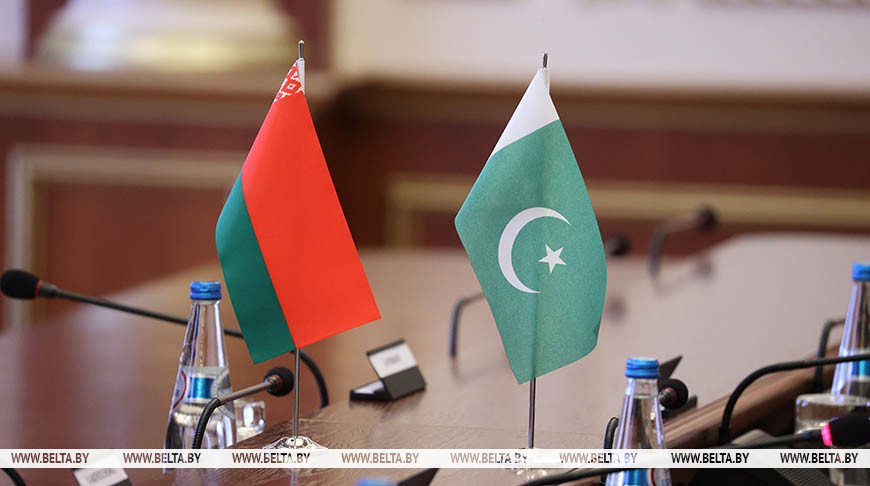
7/4/2025
46
Belarus ratifies agreement with Pakistan on international road transport
The agreement, signed in Islamabad on November 26, 2024, is aimed at regulating the operational and technical aspects of passenger and cargo transport between the two countries, as well as transit through their territories, according to BELTA. The document sets out procedures for issuing permits and special authorizations for international road transport, and regulates issues of mutual exemption from customs duties, taxes, and other charges. The implementation of this international treaty will contribute to the development of cooperation between Belarus and Pakistan in the field of road transportation and increase the volume of road transport exports toward Pakistan and neighboring countries. For Belarus, Pakistan is a promising destination. It not only opens up new markets but also provides access to the sea via Pakistani ports on the Indian Ocean. But how do carriers evaluate the prospects of road transportation to Pakistan? In May this year, Alexander Bondarenko, head of private company “Belatekavto” (Vitebsk region, Polotsk), shared his opinion with the publication “World of Heavy Motors.” “The main, conceptual point regarding transportation towards Pakistan is that the corridor works,” notes Alexander Bondarenko. “At least carriers from Central Asian countries are using it. However, the corridor's operation is unstable for several reasons. First and foremost — the Salang Tunnel. This is a mountain road tunnel in Afghanistan that connects the northern part of the country with Kabul and is a vital transport artery for both Afghanistan and the transit route to Pakistan. Its location alone means that passage through the tunnel is highly dependent on weather conditions. For example, in the event of an avalanche, not only the tunnel but the entire Salang Pass is closed. Additionally, the tunnel is often closed due to ongoing repairs, which are funded continuously by China and Pakistan — economically active neighboring countries that are interested in keeping the transport corridor functional and supporting cargo transit. And thirdly, there is occasional tension on the Afghan-Pakistani border, which also disrupts corridor operations.” Another factor to consider is that driving through the high-mountain pass itself is a challenge. Drivers who travel this route undergo special training to help them handle the dangerous road conditions. A wrong decision or a poorly executed turn could send a truck off a cliff. Uzbekistan’s experience is quite useful when analyzing the transport corridor to Pakistan. Uzbek carriers actively travel to and through Afghanistan. They have even conducted special test runs to better understand the difficulties along the corridor. One of the key problems they report is frequent tire damage due to harsh road conditions. The rocks are sharp and hard, and there is no standard asphalt concrete surface in the mountains. Therefore, vehicles need to be equipped with quarry tires. But this is a regional issue specific to Afghanistan. In contrast, the roads in Uzbekistan and Pakistan are good. Another important point is that there is no insurance coverage in Afghanistan — cargo cannot be insured. This presents a challenge for freight forwarders. However, it's possible that there are local insurance mechanisms in Afghanistan that we simply don’t know about yet. How viable are shipments to Pakistan? According to Alexander Bondarenko, this question should be considered from an economic standpoint. The corridor through Afghanistan to Pakistan is used successfully and actively by Uzbek carriers, but this does not necessarily mean that Belarusian carriers will benefit in the same way. Take, for example, the long distance a Belarusian carrier must travel just to reach Uzbekistan. “We’re not even in Afghanistan yet, and the costs are already significant! Then there are the additional costs associated with moving through the trans-Afghan corridor. Even this simple comparison shows that the economics of transportation for us and for the Uzbeks are very different.” Does this mean that transportation to Pakistan is unfeasible? "I wouldn’t categorically deny the possibility," says Bondarenko. "For example, there could be shipments of cargo that, for some reason, sea lines are unwilling to transport. There’s a need to explore options and create conditions that improve the economic efficiency of such transport because this region, and Pakistan specifically, are of interest to us. We should also engage in dialogue with both Afghanistan and Pakistan so that these countries take steps to reduce the cost of movement through the corridor. One way or another, this direction has a right to exist, even if it is unlikely to become highly profitable." “There are already goods to transport to and from Pakistan, considering the growing trade cooperation. Pakistan is a dynamically developing economy in its region, supplying not only itself but also neighboring countries. It ranks fifth in the world by population. We’ve already seen Pakistani potatoes in Belarusian stores. Their harvest season is during our winter, and it's a very attractive, fresh product — although not cheap. Belarusian retailers are trying to sell it. Pakistan also has excellent mandarins. In the opposite direction, we could supply Afghanistan with flour, sugar, and vegetable oil — products that are in high demand there,” noted Alexander Bondarenko.

